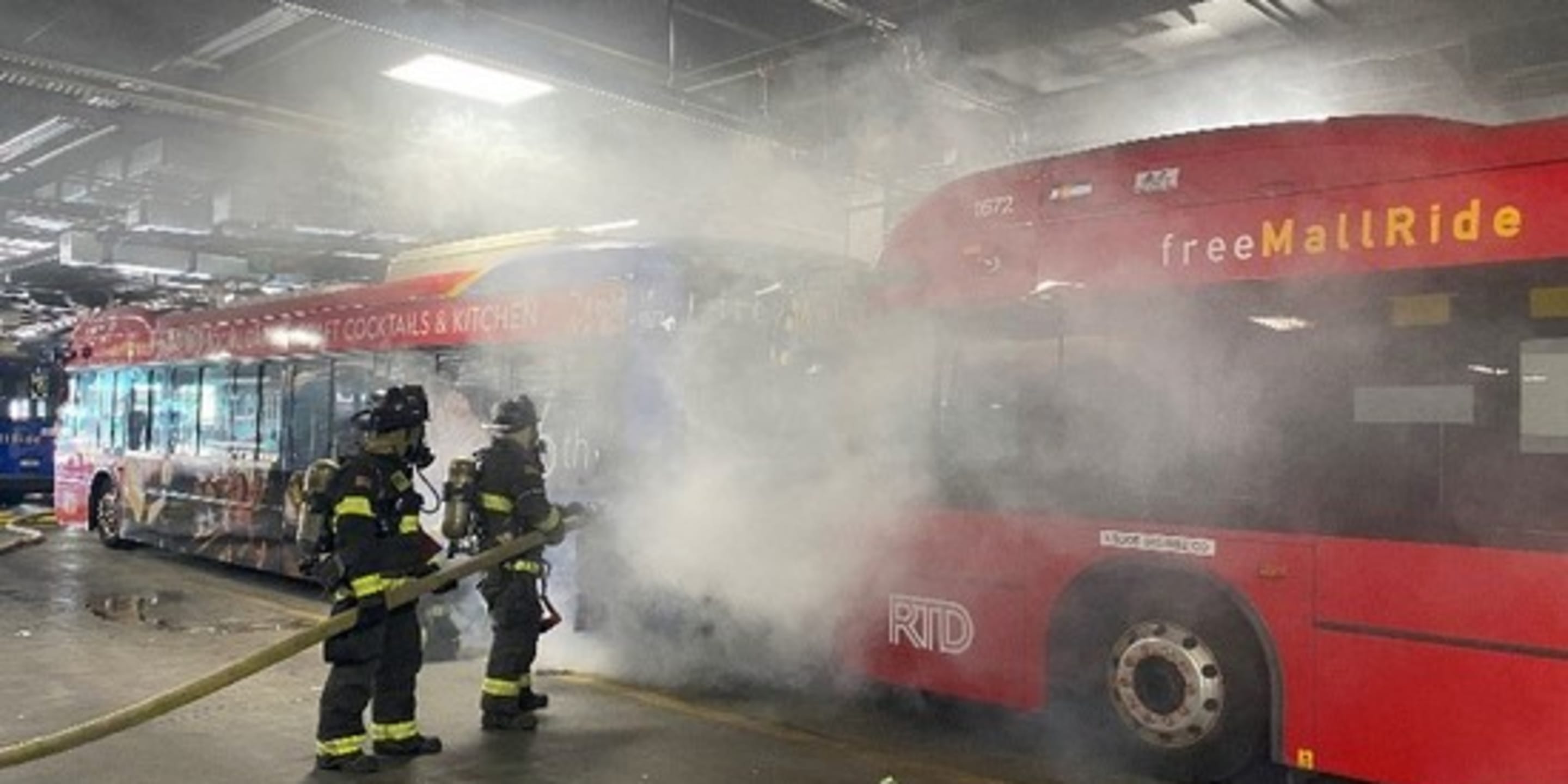
RTD, first responders train for electric bus fire emergencies
RTD and local emergency agencies staged a large-scale training exercise this week to simulate an electric bus fire, as part of the agency's long-term shift toward electric vehicles and near-term enhanced safety planning.
The exercise took place at RTD's Platte Division bus garage and involved roughly 100 participants, including staff from RTD's Bus Operations, Transit Police, along with members of the Denver Police and Denver Fire departments. The scenario simulated an all-electric16th Street FreeRide bus catching fire while charging indoors near other vehicles, giving crews the chance to practice emergency procedures and improve coordination in a high-risk environment.
RTD employees ran evacuation drills while leadership established an incident command structure to coordinate with first responders. At the same time, emergency crews identified hazards and potential cascading threats, including the risk of fire spreading to nearby buses or the charging infrastructure. The exercise tested how well teams communicated, assessed risks and limited potential service disruptions for customers.
“Our goal is to challenge our operations so that when emergencies occur, we’re ready,” said Tim Lucero, RTD General Superintendent of Street Operations. “An actual fire would force us to relocate buses and operators, coordinate closely with first responders, and maintain service for our customers. Exercises like this help us strengthen our response and improve safety.”
RTD regularly conducts emergency exercises, particularly for rail operations, but this was the first exercise focused specifically on battery-electric buses. As the agency considers expanding its electric bus fleet, employees are learning how to manage the unique risks that come with high-voltage systems and charging infrastructure.
The training aligns with RTD’s Facilities and Fleet Transition Plan, which includes a $539 million investment over the next five years to replace aging diesel buses with cleaner, more efficient models. The agency is also positioning its facilities to support future electric vehicles.
“Safety and preparedness are at the heart of everything we do as we transition to cleaner technology,” Lucero said. "We're training our people to handle them safely. That's a major part of the real work behind the transition."
RTD plans to continue expanding its electric vehicle safety training as it builds a safer, more sustainable transit system across the Denver metro area.
For more details about RTD's fleet transition and sustainability efforts, visit RTD-Denver.com.